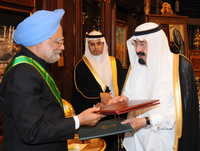
The dust has far from settled following Google’s decision last week to stop censoring its Google.cn search portal and shift all its Chinese search traffic to its Hong Kong operation, Google.com.hk. But already, the company’s latest move has been portrayed as everything from naïve and idealistic to economically foolhardy. Nevertheless, the decision is clearly a bold one, and by using a potentially enormous fissure in the politics of contemporary China to take a stand on the question of information openness, it may also prove to be shrewd. At the very least, Google is playing at a much deeper political game […]



